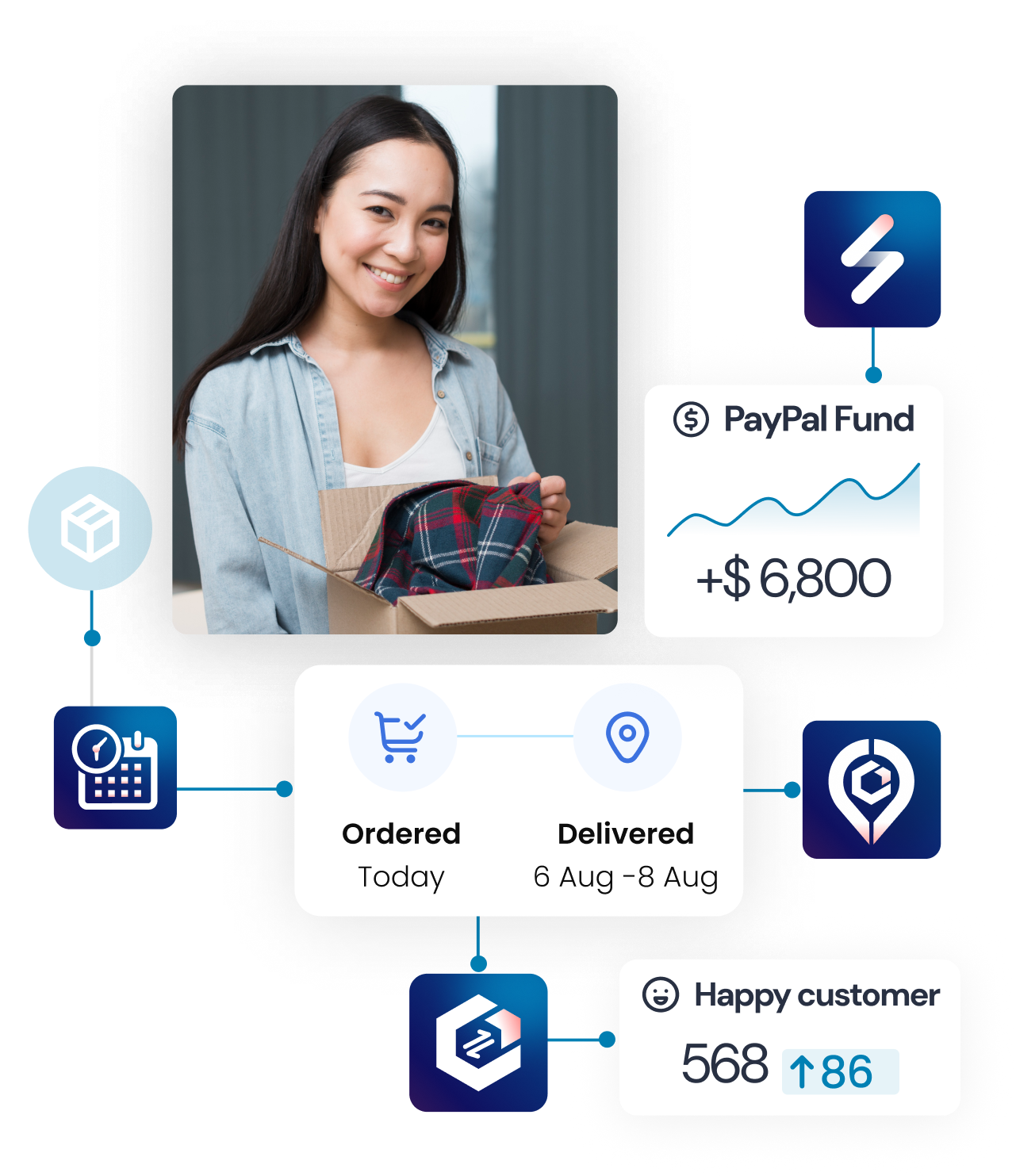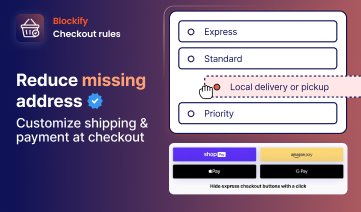Every online store deals with the same problem. A customer places an order, then immediately starts asking where it is. These questions flood email inboxes, clog phone lines, and overwhelm chat systems. The e-commerce world calls these inquiries WISMO – “Where Is My Order?” And they’re eating up massive amounts of time and money. Some stores get hundreds of WISMO questions every week. Others have found ways to cut them by 90%. The difference? A smart approach to customer communication and the right tools.
What is WISMO?
WISMO is a shortcut for “Where is my order?”. It covers any customer questions about their package location or delivery status. Common WISMO questions include:
- Has my order shipped yet?
- When will my package arrive?
- Why haven’t I received my item?
- Can you send me the tracking number?
- Is my order delayed?

These questions arrive through every possible channel. Email remains the most common, but customers also call, use live chat, send social media messages, and text. They’ll use whatever gets them answers.
Each question becomes a support ticket. Your team stops their work, searches for tracking information, checks with shipping companies, and writes responses. One question might take five minutes to resolve. Multiply that by dozens or hundreds of daily inquiries, and you see the problem.
Why WISMO Matters More Than You Think
The Numbers Don’t Lie
WISMO questions make up between 18% and 35% of all customer service work in most online stores. During holidays and big sales, they can reach 50% of the total support volume.
Half of your support tickets during Black Friday might be people asking about their orders. That’s not sustainable.
Customer Expectations Keep Rising
Almost all online shoppers track their orders after buying. Seven out of ten say tracking information is a top factor when choosing where to shop.
Customers who can’t find tracking information don’t wait patiently. They contact support immediately. And poor responses drive them away – 44% of shoppers will abandon a brand after one bad service experience.
Money Down the Drain
Every WISMO inquiry costs money. Analysis shows that resolving a single “Where’s my order?” call costs about $6 in support resources. That might not sound like much, but do the math.
If you’re getting 50 WISMO calls per week, that’s $300 weekly – or over $15,000 annually – spent on answering one basic question. The indirect costs hurt more.
Support agents answering tracking questions can’t help with complex problems, process returns, or handle sales inquiries. Talented staff become expensive answering machines.
Brand Damage

Order communication shapes how customers see your business. Silent brands seem unreliable. Responsive brands build trust.
After customers pay, they enter a nervous waiting period. They’ve sent money and received nothing tangible yet. Every quiet day increases worry. Clear communication during this time separates professional stores from amateur operations.
Why Customers Ask “Where Is My Order?”

No Communication
Most WISMO queries happen because stores don’t tell customers what’s happening. No shipping confirmation. No tracking updates. No delivery notices.
Customers typically wait three days before asking questions. After that, support tickets pile up. Any communication failure – missed emails, confusing messages, technical problems – creates uncertainty.
Unclear Delivery Times
Broad delivery windows cause problems. Tell someone “5-10 business days” and they’ll check their mailbox on day three. Missed the promised date without explanation, and support tickets follow.
Overpromising creates similar issues. Claiming two-day delivery when you average four days destroys trust and generates questions.
Tracking Problems
Shoppers expect detailed tracking. When stores don’t provide tracking numbers or links don’t work, customers contact support.
Stalled tracking updates trigger immediate concern. A package stuck showing “In Transit” for a week will generate multiple support contacts.
Shipping Issues

Packages get delayed, lost, or damaged. The weather slows delivery. Customs holds international orders. Without proactive updates about these problems, customers ask what’s happening.
Split shipments confuse buyers. Order three items, receive one, and panic follows. Customers need to know why orders arrive separately.
Warehouse Delays
Internal problems create external questions. Inventory errors, backorders, and slow processing delay shipments. Poor warehouse communication means late orders and confused customers.
Missing Self-Service
Customers prefer finding their own answers. Without order lookup tools or tracking pages, every status check requires human help. Your team answers questions that customers could resolve in seconds.
10 Strategies to Reduce WISMO Queries

Give Clear Delivery Dates
Show accurate shipping times before checkout. Display realistic dates for each shipping option. Use actual delivery data, not hopeful estimates.
Send detailed confirmation emails immediately after purchase. Include:
- Expected delivery date (bold or highlighted)
- Shipping method
- Tracking information (when available)
- Order contents
- Total paid
Shopify stores can automate this with built-in email tools, or you can use our app Synctrack: Estimated Delivery Date ETA, which is faster and more advanced. Use the built-in option if you only need dates at checkout and your rules are simple.
Choose Synctrack if you want delivery dates shown across the entire journey (PDP, cart, checkout) with richer rules, branded styling, and email sync.
Either way, create templates that automatically include accurate delivery estimates based on the shopper’s location and shipping method.
Send Constant Updates
Keep customers informed without them asking. Set up automatic messages for:
- Order received
- Payment processed
- Order packed
- Package shipped
- Out for delivery
- Delivered
- Any delays
Use email and SMS. Some customers prefer texts for urgent updates. Others only check email. Using both ensures messages arrive.
Address problems before customers notice. Weather delaying shipments? Send a message: “Winter storm affecting deliveries to your area. Your package will arrive on Thursday instead of Tuesday.”
Simplify Order Tracking
Make tracking effortless. Send tracking links immediately after shipping. Add tracking access to customer accounts. Create a tracking page on your website.

Branded tracking pages work better than carrier websites. Customers stay on your site, see familiar branding, and find information easily.
Open Multiple Support Paths
Make help easy to find while pushing self-service. Add “Track Order” buttons everywhere – website header, footer, emails, receipts.
Build a comprehensive FAQ covering delivery questions. Install chat widgets that automatically show tracking when customers type “order” or “delivery.”
Don’t hide from customers. Help them find answers through their preferred channel while reducing manual work.
Automate Basic Responses
WISMO questions follow patterns. Automation handles most instantly.
Configure chatbots to recognize order questions. When someone asks about their package, the bot provides tracking after confirming the order number. Customers get immediate answers. Agents handle real problems.
Gorgias, Zendesk, and similar platforms offer these features for Shopify stores.
Improve Fulfillment Speed
Prevent problems instead of managing them. Fast, accurate fulfillment reduces WISMO naturally.
Key improvements:
- Track inventory accurately to prevent stockouts
- Choose reliable shipping partners
- Set honest processing times
- Explain split shipments clearly
Watch the carrier performance. Replace consistently late services. Adjust delivery promises based on real performance data.
Build Trust With Branded Tracking
Carrier tracking pages confuse customers. Create branded tracking on your website instead.
Show package location, expected delivery, product images, and support options in one place. Add delivery instructions or special messages.
One retailer using branded tracking cut daily WISMO calls from 25 to almost zero. With Synctrack Order Tracking, you get a branded tracking page and order lookup in one place, so customers can self-serve updates instead of contacting support.
Speed Up Support Responses
Make remaining WISMO tickets easy to resolve. Use helpdesk software showing all order details instantly. Agents see status, tracking, and history without searching.
Save response templates for common situations. “Your order shipped today” becomes a 30-second response instead of five minutes of typing.
Handle Problems Well
Mistakes happen. Transparency matters more than perfection.
Missed a delivery promise? Admit it, apologize, and give a new date. Offer something extra – a discount code or free shipping credit – to maintain goodwill.
Honest communication during problems builds more trust than perfect delivery with poor communication.
Track Your Progress
Monitor WISMO volume regularly. Count queries per 100 orders. Identify problem areas – specific products, regions, or carriers generating questions.
Use data to improve. Adjust product descriptions, change shipping partners, or update delivery estimates based on patterns.
SyncTrack Can Support You in Reducing WISMO

After exploring all these strategies, you might wonder where to start. For Shopify stores, SyncTrack Order Tracking offers a practical solution that tackles multiple WISMO causes at once.
Remember how confusing carrier websites can be to customers? SyncTrack solves this simply with:
- Branded Tracking Page
- Customers stay on YOUR site with YOUR branding
- Shows order location, delivery date, and details in one place
- Works With Tricky Carriers
- Synctrack accurately tracks orders, supports 2800+ carriers
- Automatically matches orders to the right courier
- Clear Communication
- Shows exact delivery dates, not vague “5-10 days”
- Filters confusing shipping terms that scare customers
- Sends automatic email/SMS updates at each shipping stage
- Easy Integration
- Works with PageFly, Avada, Zapier, and other existing tools
- Sets up directly in your Shopify admin
And the best part? SyncTrack offers a free plan, perfect for testing whether it helps your specific situation. Install SyncTrack directly in your Shopify admin, no technical knowledge needed. Most stores see WISMO questions drop within the first week.
Try Now
Final Words
WISMO queries drain time and money, but they’re fixable. Start simple. Add a tracking page. Set up shipping notifications. Each small improvement reduces customer uncertainty and support tickets. The result? Fewer questions, happier customers, and a support team that handles real issues instead of tracking lookups. Your customers get the information they need. Your business saves thousands in support costs.
The solution is clear. Pick one strategy and start today!







